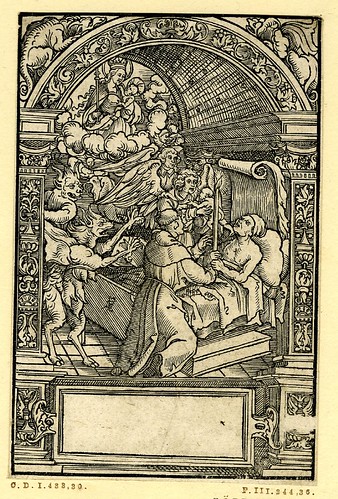
Have you ever noticed the lack of creativity within the Christian church? Just look at how the average church names itself. Often, they are named after the street name or town/city where they are located.
And I can't tell you how many creative types say that the church has NOT made a home for them. Creative people "think outside the box" and this often makes religious people feel uncomfortable. No wonder the church has a reputation of being boring.
Everything is often so predictable. Even churches that put on a show by adding productional elements, are still so predictable, formulaic and often unimaginative. And please don't get me started on the creativity drought found in Contemporary Christian music.
Why do I suggest that people of faith should value creativity? Is it simply because of my personal bias as a creative type or is there a deeper reason?
Like creativity, doesn't faith require us to use our imaginations and to visualize? A creative sculptor has to visualize what they want to sculpt as they create their art. A musician has to exercise great imagination to create music. When faith tells us that there is a God, a heaven, a hell, does it not require us to do the same?
Secondly, and perhaps a foreign concept to many of us, what is faith if it doesn't challenge us to critical thinking, just like creativity does? No wonder this is a foreign concept. People of faith aren't exactly known for critical thinking. I left a particular Christian denomination years ago because I found that they inherently rejected critical thinking and couldn't provide answers to my questions.
I've watched the church view critical thinking as a threat to core doctrine. But I have always believed that if a doctrine is true, than it can survive all critical thinking as long as our we are objective. I instinctively believe that the truth will withstand all assaults if we are open to it. I don't deny my biases and can't eliminate them, but do everything that I can to minimize them.
Perhaps some of you don't see the connection between critical thinking and creativity. This is best seen via illustration. I teach guitar as an adjunct professor and private instructor. When I give my students a scale, I ask them to question it. I challenge them to ask, "What can possibly be done with this set of notes?" The result of such critical thinking is that they will try ordering the notes of a scale in creative ways that yield all sorts of melodies, phrases and patterns. They end up coming up with things that are new. So, while it is not often said, creativity is directly tied to critical thinking.
A simpler example, that non-musicians can better appreciate, is to take the game of Scrabble. Each player is given seven letters. Success requires the player to question the letters they possess asking, "What words can be formed??" This type of critical thinking will yield the fruits of creativity.
Another reason that everyone, whether religious or not, should value creativity is simply because creativity allows for repetition. I can endure, and even enjoy repetition, if it is done with creativity. I need to remind myself of truths that I have known for years, but if those truths aren't presented to me with the freshness that creativity provides, I'm not going to be able to receive them. A church that can't present old truth creatively, will be challenged to endure boring repetitions and grow stale with traditionalism. The only alternative is for it to find "new truth", which is not exactly an inherent quality within religious faith, and is a back door to heretical teaching.
Something else that is interesting about creativity, is its connection to propositions and systems. In the above two examples, creativity has to be applied to propositions (think black and white). I ask the musician to apply creativity to a scale, which is born out of the system of music theory. The Scrabble player applies creativity to letters to form words.
Christianity echos this truth when it says:
"Faith comes by hearing and hearing by the Word of God." Romans 10:17
"The word became flesh and made his dwelling among us." John 1:14
Computers are even examples of this connection. The fruits of digital creativity are found in Youtube, Itunes, MySpace, and even at a more rudimentary level in the graphics of the operating system (GUI for you computer geeks). Yet, all of it boils down to the binary propositions of 0's and 1's (black and white, right and wrong).
So I'm not simply advocating that people of faith should make things up. The creativity that is faith is hinged to the propositions that we commonly call theology and Divine revelation.
So given all of the above, why is it that people of faith so often lack creativity and imagination? I would expect people of faith to have the most profound imaginations. Could this be the consequence of centuries of institutional religion that has produced a top down hierarchy of compliance as opposed to the critical thinking process of considering other's perspectives via the dynamics of a true community?
Have you ever noticed how often Jesus engaged people with questions?





